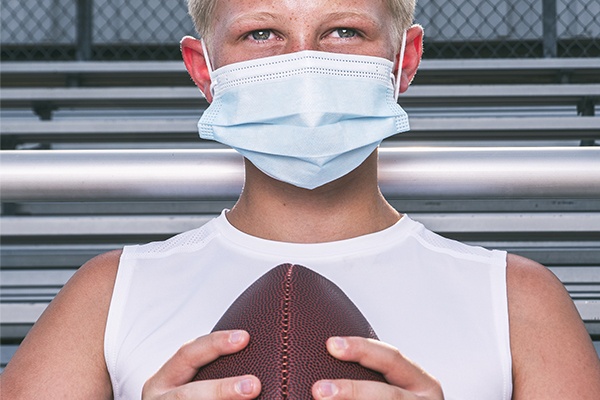As of the beginning of the 2020 school year, officials in both Nassau and Suffolk County have put organized school sports on hold. While opinions vary as to whether this is a good idea, what’s important for parents is knowing how you can support your children’s physical and mental well-being during this difficult time.
Andrew Malekoff, Executive Director of North Shore Child & Family Guidance Center, was a multi-sport athlete during his school career and says that being involved in sports provided great opportunities for him. “Participating gave me something to look forward to every season, year-round,” he says. “It kept me out of trouble after school and on weekends.”
But it was more than a distraction, he emphasizes. “From an emotional growth perspective, sports can teach lessons about competition, cooperation, perseverance and resilience.”
The many benefits to a child’s physical and mental well-being are well known. Sports help them develop fine motor skills, reduce stress, boost their immune systems and maintain a healthy weight, which makes them less likely to experience a range of medical problems. Children who participate in sports tend to have greater self-esteem; they learn teamwork, responsibility and develop lasting friendships.
How to Help your Child Deal with the Loss
As with any disappointment, encourage your child to discuss their feelings, as opposed to keeping them all bottled up. “Many of our kids are experiencing a deep sense of grief from what they may experience as a devastating loss,” says Malekoff. “They’ve not only lost sports, but also many other important activities and the many relationships closely tied to those experiences. Try your best to keep an open dialogue, validating their experience and acknowledging that it’s a lot to deal with. You never want to give the impression that this isn’t a big deal. It is!”
You can also help by being a role model for how to deal with loss. Stay calm and try to be encouraging without dismissing how badly they feel. Don’t minimize the impact. “Although we don’t have a timetable for when the pandemic will be over, let your kids know that the best medical experts in the world are working on the solution and that you are optimistic that things will return to normal,” says Malekoff.
While they may want to spend more time on their screens, it’s important to set limits. “Too much screen time is likely, in the long run, to make kids feel more isolated, unmotivated and demoralized,” says Malekoff. “It’s OK to relax those rules to some degree, allowing for the diversion and connection with their peers, but don’t abandon reasonable limits altogether.”
Perhaps your most important tool is to create other opportunities to keep your child healthy and engaged. Those could include family walks or other physical activities, such as practicing drills together or doing an online exercise class. (To read about the benefits of physical activities on children’s mental health, read our blog, “Get Excited About Exercise.”)
Precautions to Take If You Decide to Keep Your Child in Sports
During the pandemic, some parents have chosen to keep their children active in sports through community youth leagues, private or group instruction, or even just through games with other children. That is a personal decision for each family to make. But there are guidelines created by the Centers for Disease Control and Prevention that can protect your child if they participate in sports.
To reduce risk, here are some important tips:
- Let players, coaches and others know that if they are experiencing any symptoms of illness, they should stay home (they should also remain at home if they have been in contact with anyone who is ill).
- Designate appropriate spacing using tape on floors or fields for drills and downtime.
- Tell spectators to socially distance and wear masks.
- Discourage carpooling.
- Teach appropriate hygiene and safety measures, which means washing hands for at least 20 seconds; using hand sanitizer when soap isn’t available; not sharing towels or other items; discouraging high fives and fist bumps; creating distance during breaks and whenever possible; and wearing masks at all times.
Since the situation is evolving, it’s wise to keep up to date on the health department regulations statewide and by county. Click here for more information.
For more information:
NYU Langone created a webinar to advise parents regarding steps they can take to foster a safe return of their kids to youth sports.
You can listen here.














